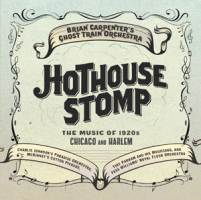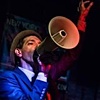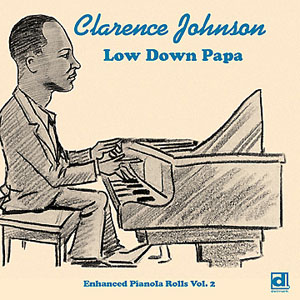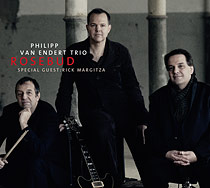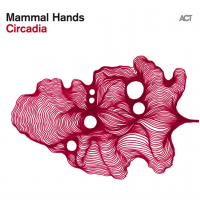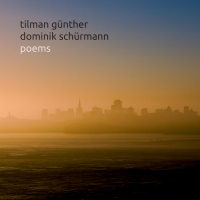Home » Jazz Articles » Album Review » Brian Carpenter’s Ghost Train Orchestra: Hothouse Stomp
Brian Carpenter’s Ghost Train Orchestra: Hothouse Stomp
Carpenter concentrates on four seminal bands, that were performing in the 1920s: Charlie Johnson's Paradise Orchestra, McKinney's Cotton Pickers, Tiny Parham and his Musicians and Fess Williams' Royal Flush Orchestra—all bands addressed in detail in The Penguin Guide to Jazz: the History of Jazz in 1001 Albums (Penguin, 2010)). Carpenter sharpens his focus, within this decade, on the arrangers and composers for these bands, specifically Don Redman and John Nesbitt, who arranged for McKinney's Cotton Pickers, Charlie Johnson, Charles Mingus' uncle Stanley "Fess" Williams, all in New York City and Hartzell "Tiny" Parham in Chicago.
This music serves as a bridge between the wide-open New Orleans-Chicago, small Ensemble, early jazz style and the more formally arranged larger band ensembles that would fully mature in the 1930s. The music played by these four bands bears many of the characteristics on the New Orleans small ensemble jazz: prominent clarinet, tuba, and banjo. The bands are larger and the compositions more tightly arranged, though this, in no way, curtailed the abandon wrought in these songs. This is adventurous music, something much more dangerous and mercurial than the relatively tame sounds of Glenn Miller, the Dorsey Brothers, and Benny Goodman to come.
The performances range from Charlie Johnson's stately "Blues Have Surely Got Me," replete with a bowed hand saw, to the barely contained blues, "Hot Bones and Rice" and "Dixie Stomp." Taken at a slow simmer, these pieces heat their surroundings with a radioactive warmth, infectious, and viral in the modern-media sense of the word. Rather than old-timey music this recording recounts and reproduces an era when things were in rapid change, seeking a new equilibrium, all in an historically-informed, period performance.
Track Listing
Ghost Train; Mojo Strut; Stop Kidding; Gee Baby, Ain't I Good To You?; Voodoo; Blues Sure Have Got Me; Hot Bones and Rice; Dixie Stomp; Lucky 3-6-9; The Boy in the Boat; Slide, Mr. Jelly Slide; Hot Tempered Blues.
Personnel
Brian Carpenter’s Ghost Train Orchestra
band / ensemble / orchestraBrian Carpenter: trumpet, harmonica (1), vocals (5); Dennis Lichtman: clarinet; Andy Laster: alto saxophone; Matt Bauder: tenor saxophone (3-9, 12), alto saxophone (11), clarinet (1, 2, 10); Curtis Hasselbring: trombone; Mazz Swift: violin, vocals (4, 6); Jordan Voelker: viola, saw (5, 6, 10); Brandon Seabrook: banjo; Ron Caswell: tuba; Rob Garcia: drums.
Album information
Title: Hothouse Stomp | Year Released: 2011 | Record Label: Accurate Records
Tags
About Brian Carpenter’s Ghost Train Orchestra
Instrument: Band / ensemble / orchestra
PREVIOUS / NEXT
Support All About Jazz
 All About Jazz has been a pillar of jazz since 1995, championing it as an art form and, more importantly, supporting the musicians who make it. Our enduring commitment has made "AAJ" one of the most culturally important websites of its kind, read by hundreds of thousands of fans, musicians and industry figures every month.
All About Jazz has been a pillar of jazz since 1995, championing it as an art form and, more importantly, supporting the musicians who make it. Our enduring commitment has made "AAJ" one of the most culturally important websites of its kind, read by hundreds of thousands of fans, musicians and industry figures every month.


